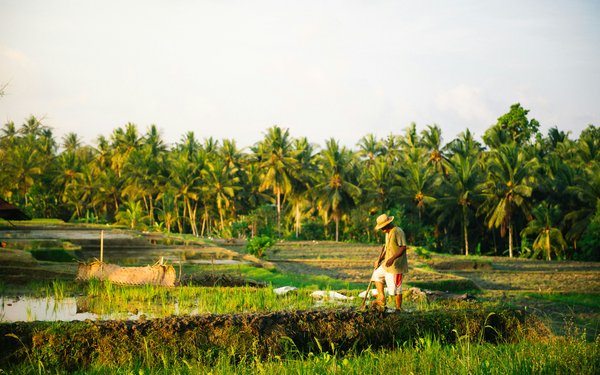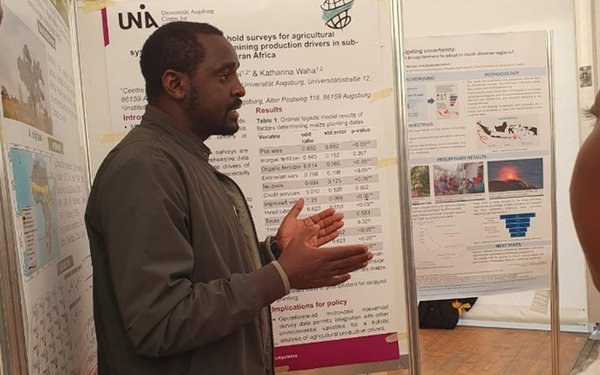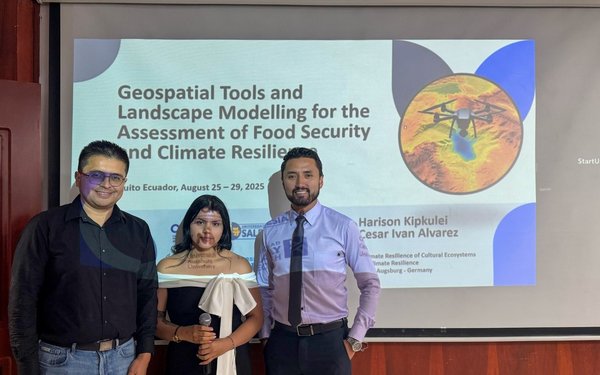Research group for Climate Resilience of Human-made Ecosystems
Welcome to the Research Group for Climate Resilience of Human made Ecosystems
Resilience means to absorb, to recover and to transform. We need to strengthen the resilience of ecosystems and societies. Our responsibility is to act on overwhelming evidence of climate risks with an open mind and look for solutions that improve living conditions of the most vulnerable while ensuring a balanced use of resources.
?
The Research Group Climate Resilience of Human-Made Ecosystems studies the impacts of climate change on land use and agriculture and adaptation in the context of global challenges such as food and nutrition security and sustainability.
?
Two core themes of our research currently are:
??
1. Regional and global climate change impacts
?
Impact models are well validated and tested for different sectors, including agriculture, their results used widely and often provide initial evidence on how humans change the climate system and which risks evolve from that. The leading research questions for us in this area are: Where globally are climate change hotspots and where are impacts strongest? What are the uncertainties in climate change impact projections and how can we improve simulation models used in impact assessments?
?
?
Smallholder farmers provide one-third of all food supplied worldwide but occupy only one-fourth of the global cropland. Small farms tend to focus more on food production than on producing feed for livestock or biomass for other uses, which highlights their importance for household and domestic food security. The leading research questions for us in this area are: What are the specific challenges for smallholders in adapting to climate change? Which adaptation strategies are most efficient and already used by rural households and proved to be successful? What are barriers or enablers for efficient adaptation?
?
The Research Group for Climate Resilience of Human-Made Ecosystems is an active part of the Institute of Geography, the Faculty of Applied Computer Sciences and the Centre for Climate Resilience at Augsburg 伟德国际_伟德国际1946$娱乐app游戏.
News
The role of multiple cropping in sustainable and resilient land use and food production
Read our latest research on multiple cropping, published with Springer Nature in Communications Earth & Environment.
(Photo Credit: Daniel Stiel, unsplash)

Reconciling land system changes with planetary health, Tropentag 2025
Dr. Harison Kipkulei attended the Tropentag 2025 Conference in Bonn, Germany, from 10–12 September.
(Photo Credit: Irene Kadzere)

Geospatial tools and landscape modelling for the assessment of food security and climate resilience: Course held in Quito, Ecuador
Cesar Ivan Alvarez and Harison Kipkulei, from the Research Group for Climate Resilience, taught the bilingual course “Herramientas geoespaciales y modelado de paisajes para la evaluación de la seguridad alimentaria y la resiliencia climática” in Quito, Ecuador (August 25–29). Supported by CEDIA/Fondo Avante, the training strengthened Ecuadorian researchers’ geospatial capacities.?
(?U.P. S.)

?
?
?
Contact
Postal address
Centre for Climate Resilience
伟德国际_伟德国际1946$娱乐app游戏 Augsburg
Universit?tsstra?e 2
86159 Augsburg
?
Adress of the Chair
Centre for Climate Resilience
Chair for Climate Resilience of Human Made Ecosystems
伟德国际_伟德国际1946$娱乐app游戏 Augsburg
Universit?tsstra?e 12a
86159 Augsburg
?


